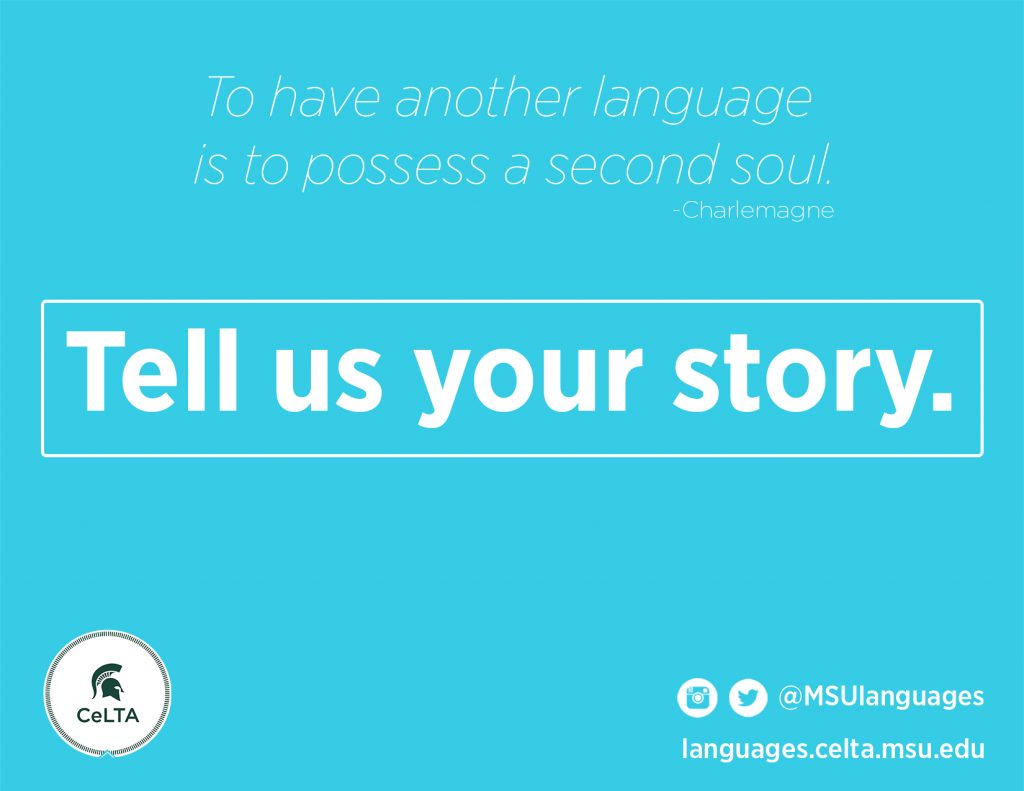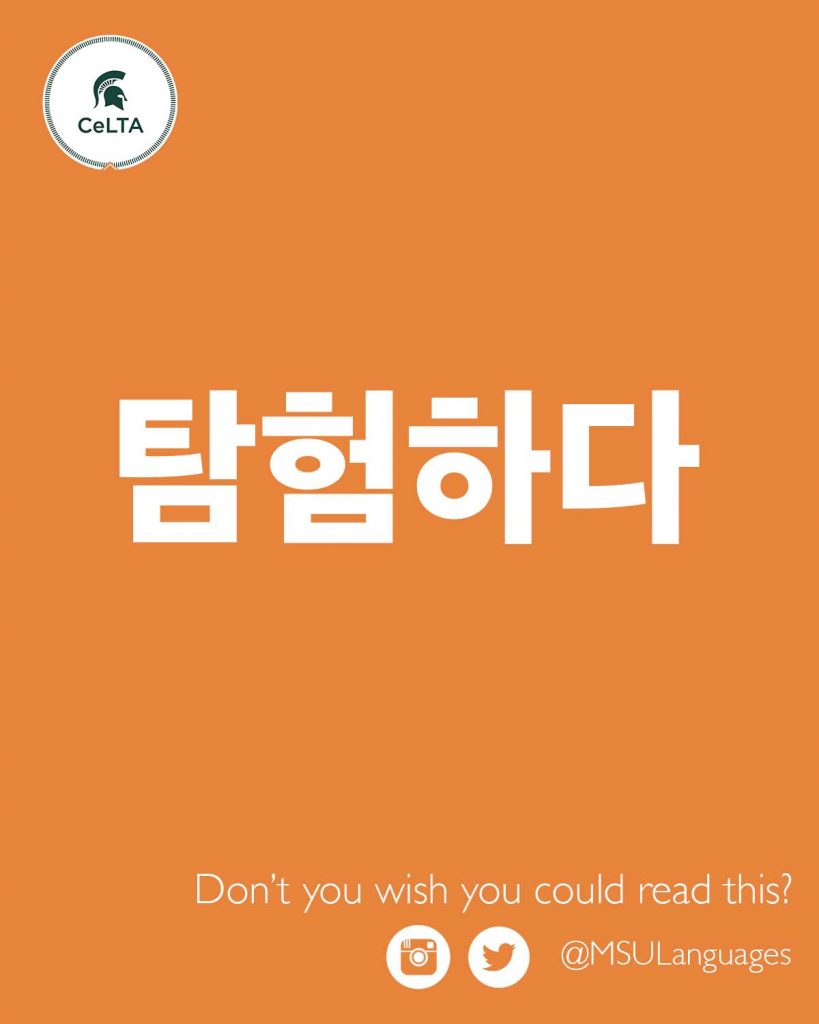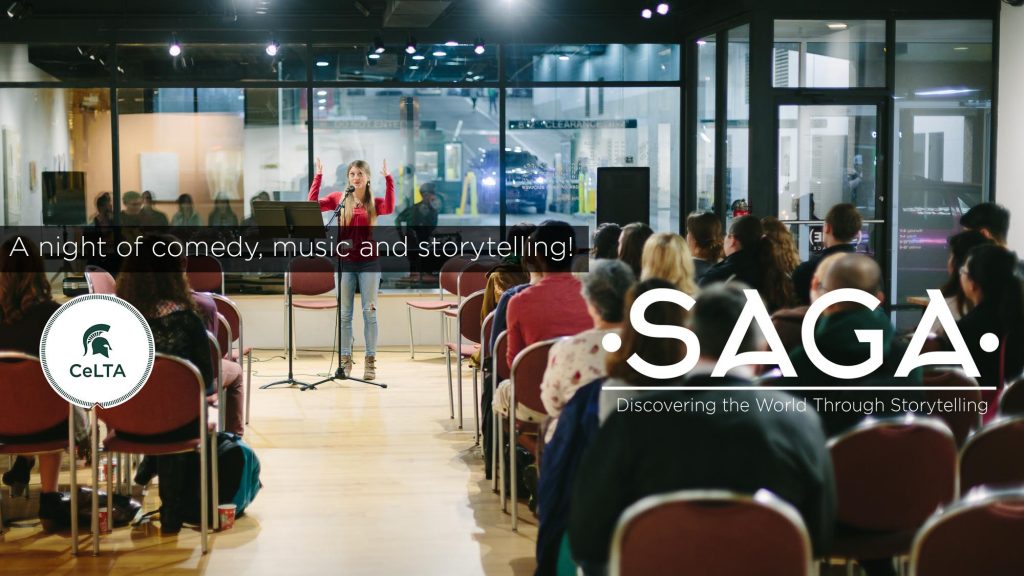Impacting the Language Learning Narrative
|
|

Luca Giupponi, Center for Language Teaching Advancement, East Lansing, MI. |
DOI: https://www.doi.org/10.69732/YBKW1108
One of the perennial problems plaguing language departments in higher education has to do with student recruitment, enrollment, and retention. Nationally, overall enrollments in languages other than English have decreased by 6.7% between 2009 and 2013 (Goldberg, Looney, & Lusin, 2015). At Michigan State University, while there has been a 2% decline in overall enrollments in the more commonly taught language courses over the same time period, the decline from 2009 to 2016 has been steeper at 9%.
What are the causes? While we can never say for sure, it is likely a combination of the following:
- Some colleges or departments dropping or lowering language requirements
- Language course loads may be too demanding
- Too many stories of students taking two years of language and “not being able to say anything”
- An inaccurate understanding of the value of language learning in one’s life
It’s true – some of these may be beyond the scope or reach of a language center’s mission or power. At the same time, there is a lot we can do to alleviate the problem. The last point, in particular, is a great place to start. While most students would probably say that learning a language “looks good on a resume,” they would probably be unable to articulate the impact it has on their life experience. So, what can we do to help them get there? How can we start changing the rhetoric surrounding language learning?
At the Michigan State University Center for Language Teaching Advancement (CeLTA), a team of faculty members and undergraduate student interns developed a storytelling campaign to showcase the transformative power of language learning.
The campaign is distributed through several channel:
- A website
- An Instagram profile
- A series of posters and other print media (see Pictures 1 and 2)
- A series of storytelling events


Three key components make this approach unique:
First, a focus on real, current student stories that highlight the ways in which language learning makes a difference, changes a life trajectory for the better, and impacts students beyond what a resume can say.
Second, an understanding of what values, arguments, and experiences are most relevant to the student body (and therefore most likely to be heard). While it is true that speaking German looks good on your resume or that learning Italian can stave off the onset of dementia, it is unlikely that those arguments would compel someone – especially at the age of 18 or 20 – to enroll in a year-long quest. But what if we were to inspire our students to dream bigger, seek true community, find their identity and passion, and show them it can be done?
Third, the decision to let undergraduate student interns drive the campaign vision, write content, manage social media, and be the face of the storytelling events. While it is tempting to want to take control (after all, this is a university initiative!), students can speak most effectively to students because they understand students best. This, of course, comes with challenges: Students are busy, they need training and feedback, and they may not readily understand the pressures of higher education administration. At the same time, they bring a wealth of insight and enthusiasm that is sometimes missing among faculty members and administrators.
It may seem like a campaign of this scope may not be something that smaller centers, institutions, or one-person language programs can pull off. We were able to launch this campaign with very limited resources but a lot of enthusiasm. Our planning phase began in 2014 with a charge from our Dean. A small group of CeLTA personnel met on a monthly basis to envision this strategy with input from the marketing unit of our college. In a step-by-step process, we hired and trained student interns, launched our website and Instagram feed in January 2016, and added our first storytelling event later that same year. A modest budget is provided by CeLTA (10% of a faculty position for the supervision of 2 student interns, who are paid hourly at 5 hours per week for fall and spring semesters as well as some costs for the hosting of the website) and through in-kind donations from local stores for the storytelling events and printed materials.

Does it work? A big challenge of the campaign is tracking its effectiveness. While it is impossible to track a direct effect of our campaign on enrollments, we can look at traffic data to determine our campaign’s reach. Since we started in January 2016,
- Our website has been visited by over 2,500 different users,
- Our Instagram profile has accumulated over 400 followers,
- Between 40 to 70 Instagram users interact with each post,
- The first SAGA event was attended by over 60 people (students, faculty, and community members), and the second event saw 50 attendees.
Anecdotally, the posters (Picture 2) sparked some discussion among faculty members and instructors, who were intrigued by the campaign (goal met!) and wanted copies for their offices. All faculty and instructors were also open to have us come to their language classes for a few minutes and talk about the project and distribute our postcards. We have also heard from individual students who added a minor or an additional language class because they read our stories. Whether enrollment numbers overall increase, and, if they do, how much of an impact this campaign had will be difficult to tell. What we do know is that the interns who have been involved gained important skills in creative writing, publishing, and event management. We also know that those who read and listen to the stories (come to) believe in the transformative power of language and share their experiences with others.
To continue growing our impact, we added a Faculty Advisory Committee in 2017 to seek input and get buy-in from our colleagues, we streamlined our interest process to allow students to quickly and easily contribute and express interest on our website, we are experimenting with paid advertising to expand our reach, and we are planning discipline-specific events to build on the many connections languages have with other areas of study.
To learn more about CeLTA’s campaign, visit languages.celta.msu.edu or watch the IALLT webinar from September 20, 2017 (http://iallt.org/resources/webinars/).
Reference
Goldberg, D., Looney, D., & Lusin, N. (2015). Enrollments in languages other than English in United States institutions of higher education, Fall 2013. Retrieved from https://www.mla.org/content/download/31180/1452509/2013_enrollment_survey.pdf


 Angelika Kraemer, Center for Language Teaching Advancement, East Lansing, MI.
Angelika Kraemer, Center for Language Teaching Advancement, East Lansing, MI.